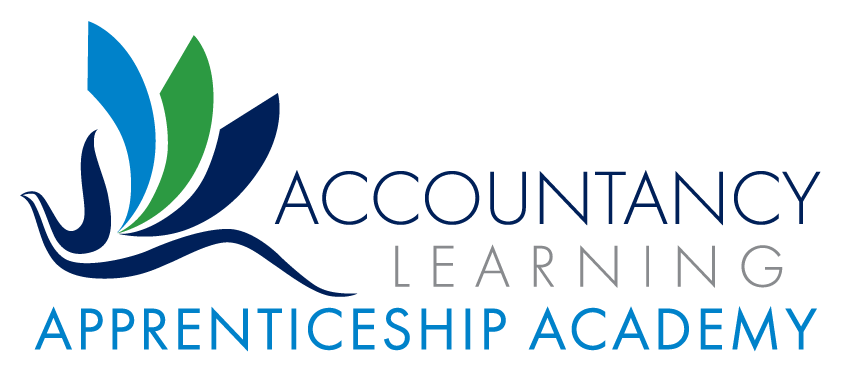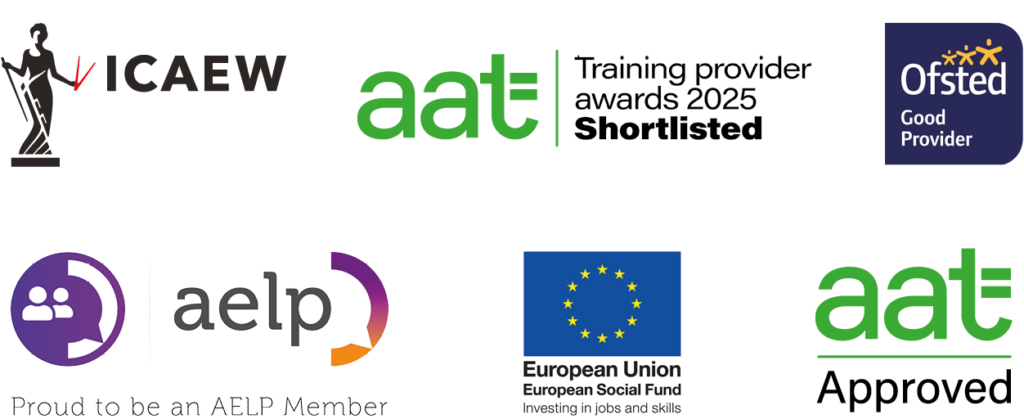Accounting qualifications – converting from distance learning to an apprenticeship.
When we receive a distance learning enrolment form, we like to ask the student what their aspirations are, so that we can be sure that they have enrolled on the programme most appropriate for their needs. We have had a number of instances this year where an employer has enrolled a student onto one of our tutor supported distance learning courses but, as a result of this discussion, have transferred them onto our apprenticeship programme.
Why??
In many cases, our AAT distance learning students simply want to acquire professional accounting qualifications that reflect the practical experience they already have, perhaps also filling a few gaps in knowledge. The distance learning approach is very appropriate for them.
Apprenticeships, however, are very much a matter of developing significant new skills and behaviours as well as developing the technical accounting knowledge included in the related professional accounting qualifications.
In the cases referred to above, where the student has transferred to our apprenticeship programme, the majority were working in an accounts departments in business and the employer wanted to grow their employees’ roles in the office, so that they could take on more responsibilities within the business and in particular within the accounts function. However, until they spoke to us, they hadn’t realised:
- what was involved in the apprenticeship programmes; and
- they didn’t think that their employee would be eligible, either because they thought that they were too old or because their employee didn’t want to attend a college day release course each week.
Busting some apprenticeship myths!
- Age is no limit! Provided the prospective student is aged 16 or over they could be eligible
- There is no prohibition on graduates undertaking an apprenticeship, provided that their apprenticeship is in another discipline or at a higher level to their degree
- One doesn’t have to attend a college day release class each week.
A number of our apprentices now attend our virtual “drop-in” study sessions at a time to suit them, often avoiding lengthy travel and also allowing flexibility during their really busy times in the office; There is however, a requirement that 20% of the apprentices paid working time is devoted to “off the job training” (OTJT). This OTJT can be achieved in a variety of ways, including attendance at weekly study sessions and learning and development of new skills and behaviours at work.
It is this development of significant new skills and behaviours that is crucial, and we work closely with employers so that this is achieved both with us and with them. The relationship with the employer is key to making this work. Although there is a cash saving to the employer on the course fees, this has to be balanced out by the increased commitment to provide this off the job training and development of skills in the workplace.
The range of Accounting Apprenticeships that we offer
At Accountancy Learning we currently offer the following accounting apprenticeships:
- Accounts/Finance Assistant Apprenticeship (Level 2) (AAT)
- Assistant Accountant Apprenticeship (Level 3) (AAT)
- Professional Accounting Technician Apprenticeship (Level 4) (AAT)
- Accountancy / Taxation Professional Apprenticeship (Level 7) (ACA)
Benefits to employers
As an employer, there are several reasons to consider moving your member of staff onto an apprenticeship including:
- For non-levy paying SMEs, 95% of the apprenticeship training costs are covered by funding from the ESFA. Typically, a place on our AAT Level 3 Advanced Accounting distance learning course costs over £1,500 per delegate, including exam fees. If the same qualification is studied as an apprenticeship, the cost would normally be reduced to £400 + VAT.
- If the apprentice is aged 16-18 at the start of the apprenticeship, the employer receives an incentive of £1,000, payable half after 3 months employment and half after 12 months.
- Furthermore, if this employer employs less than 50 staff, the employer contribution towards the fees is reduced to £nil.
- For levy payers, the training costs are paid out of their levy pot. Once this pot is fully utilised, the ESFA pay 95% of the balance and the employer 5%.
- By transferring them onto an apprenticeship, your employee is likely to feel more appreciated and connected to your practice or business. Plus, if you are happy for them to progress to higher apprenticeship levels, they are likely to stay with you for the duration (and beyond) enabling you and the business to benefit from their developing skills.
- The wage costs for employing an apprentice start from just £4.30 per hour, but you can pay more if you want to (and to recruit and retain the best quality candidates, we would recommend you do pay more than the minimum amount).
- The peace of mind that the employee is receiving all the professional training and support they need from a qualified and experienced third party.
- Apprentices should see their role as more than just “a job”. It should be integral to their career aspirations and their development in the business – becoming a more “rounded” professional – and the employer should benefit from this increased motivation and drive.
Employers can find more information about our accounting apprenticeships and the funding that is available here.
Benefits to employees
From the employee’s perspective there are also benefits for transferring from a distance learning course to an apprenticeship, these include:
- Knowing that their employer is happy to invest in their longer term career development is always a positive thing.
- Having access to training and support from qualified AAT tutors who are available either face to face in one of our south west classroom venues or via MS teams, email or the phone, anywhere in England. Our tutors will answer queries, guide students through the process and help them progress with their studies and with the skills and behaviours required by their employer.
- Being in paid employment while they learn, which may not be the case if they started a distance learning course on their own, even with their employer’s involvement.
Further details about apprenticeships for students can be found here.
Find out more
If you have recently enrolled an employee onto an AAT distance learning course, or you are thinking of doing so, we would be happy to have a chat to explain what’s involved and help you decide which route would be best for your business/practice and your employee.
You can call us on 01392 435349 or email: [email protected].






